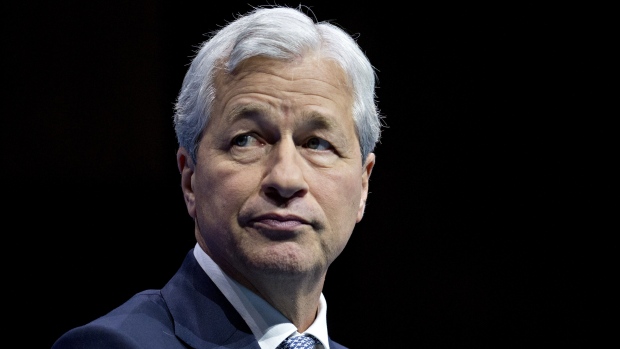Apr 6, 2020
Jamie Dimon sees 'bad recession' and echoes of 2008 crisis ahead
, Bloomberg News

Jamie Dimon expects fallout from the coronavirus pandemic to include a major economic downturn and stress similar to the crisis that nearly brought down the U.S. financial system in 2008.
“At a minimum, we assume that it will include a bad recession combined with some kind of financial stress similar to the global financial crisis of 2008,” the chief executive officer of JPMorgan Chase & Co. said Monday in his annual letter to shareholders. “Our bank cannot be immune to the effects of this kind of stress.”
The 23-page letter was his shortest since March 2008, and came less than a week after Dimon told staff he’d returned to work after undergoing emergency heart surgery. It was his first public commentary about the coronavirus’s impact since the bank’s investor day on Feb. 25. At the time, the virus still seemed a distant threat, with fewer than 60 cases in the U.S. and none in New York.
Dimon, the only current CEO who steered a major U.S. bank through the financial crisis, said JPMorgan is “unlikely” to cut its dividend in response to the current situation. Such a move would only result from “extreme prudence,” he said.
Throughout the letter, Dimon outlined initiatives the firm is taking to support its employees, businesses and the community but refrained from offering long opinions about public policy the way he has in previous missives.
Dimon, 64, has become a spokesman for Wall Street thanks to his frequent public appearances, outspoken nature and nearly 15-year tenure at the biggest and most profitable bank in America. His absence while he was recovering from surgery was felt across the industry as policy makers grappled with dire warnings about the economic effects of the pandemic and governments stepped up efforts to keep millions of people at home in an effort to stem the spread of the highly contagious virus.
Up until last year, the annual missives had gradually gotten longer, more than tripling in length since Dimon took over as CEO of JPMorgan at the end of 2005. The CEO writes the letters himself but drafts are reviewed and edited by the bank’s legal, accounting, compliance, public relations and government affairs teams before they’re published.


